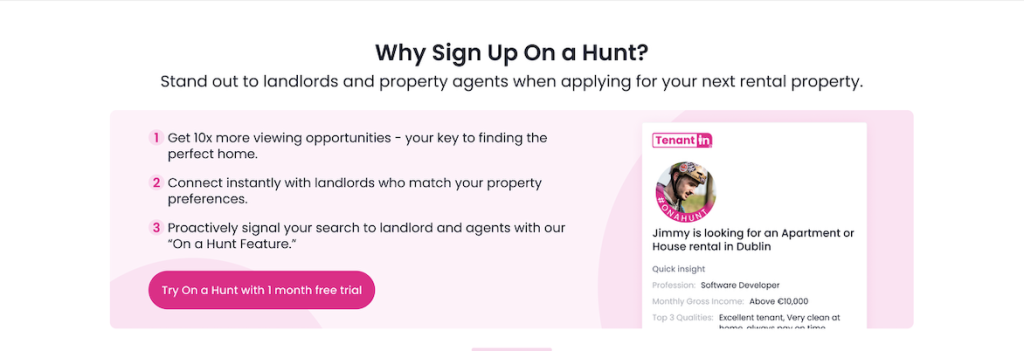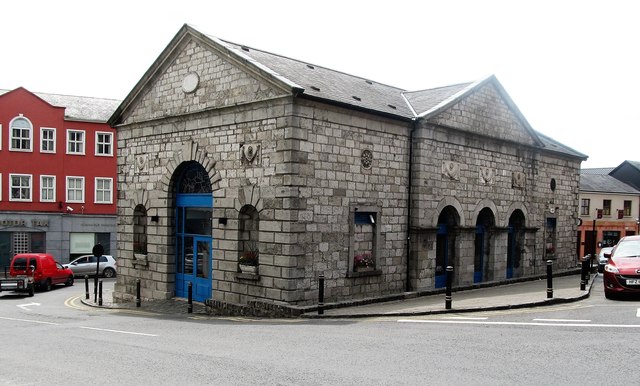If you’ve just arrived and are renting in Ireland for the first time, navigating the local housing market might feel overwhelming. Between understanding your legal rights as a tenant, knowing what landlords can and cannot do, and learning how to present yourself as a strong applicant, there’s a lot to take in.
But here’s the truth: the more you know, the more control you have. That’s where this guide comes in. Whether you’ve just landed in Dublin or are settling in Cork, this article will break down the essentials of tenant rights and rent laws in Ireland in simple terms.
At Tenantin.ie, we help tenants like you stand out to landlords through smart tools like our free resume builder, while also ensuring you’re informed and prepared. Let’s dive in.
Understanding Your Rights When Renting in Ireland
Ireland has a strong legal framework to protect both tenants and landlords. Your rights begin the moment you agree to rent a property and move in. Whether you’re in a house share or renting a whole flat, you are legally entitled to:
- A property that is safe and in good repair
- Privacy — your landlord must give at least 24 hours’ notice before visiting
- A rent that is fair and, in many areas, subject to Rent Pressure Zone rules
- A proper notice period if your landlord asks you to leave
- The return of your deposit unless there is proven damage or unpaid rent
As a tenant, your main responsibility is to pay rent on time, look after the property, and provide appropriate notice if you plan to leave. It sounds simple, but confusion can easily arise if expectations aren’t clearly communicated.
What Is a Tenant Resume and Why Does It Matter?
When you’re new to the country and have no local rental history, finding a place to live can be harder — especially in competitive cities like Dublin, Galway, or Limerick.
That’s why creating a tenant resume is one of the smartest things you can do. Think of it as your rental CV. It gives landlords a snapshot of who you are, your background, and why you would make a great tenant.
At Tenantin.ie, our free tool helps you build your tenant profile in minutes. It includes:
- Personal details
- Employment and income verification
- Rental history (from Ireland or abroad)
- References if available
Once your information is filled in, you can download your tenant resume and send it directly to landlords. This makes you look professional, organised, and trustworthy — all qualities landlords are looking for.
Your Lease Agreement: What to Look Out For
When renting in Ireland, you’ll be asked to sign a lease agreement. This is a legally binding contract between you and the landlord. Before you sign anything, check that it includes:
- The amount of rent and when it’s due
- The length of the lease (usually 6 or 12 months)
- Details about the deposit
- Who is responsible for maintenance and repairs
- The notice period for ending the lease
Always ask for a written lease. Verbal agreements are legal, but they’re much harder to enforce if something goes wrong.
Remember, your tenant resume is not part of the lease — it’s a document you provide beforehand to secure the property. Once you’ve moved in, keep a copy of the lease, rent receipts, and any communication with your landlord. These can serve as part of your rental history for future applications.
Rent Pressure Zones and Rent Increases

Many parts of Ireland — especially Dublin and surrounding areas — are designated as Rent Pressure Zones (RPZs). In these areas, landlords are limited in how much they can increase the rent.
Here’s what you need to know:
- Rent can only be increased every 12 months
- The increase must follow a specific formula set by the Residential Tenancies Board (RTB)
- Your landlord must provide written notice of any increase at least 90 days in advance
If you’re unsure whether the property you’re renting is in an RPZ, check on the RTB website.
Landlords must register each tenancy with the RTB, which protects both sides in case of a dispute. Tenants should ask for confirmation of registration during the application process — and including your tenant resume with the question shows you’re informed and serious.
What Happens if Things Go Wrong?
If your landlord refuses to return your deposit without reason, tries to evict you without proper notice, or increases rent unlawfully, you can raise a dispute with the Residential Tenancies Board.
The RTB offers mediation and formal dispute resolution services. You do not need a lawyer, and the process is designed to be accessible for tenants and landlords alike.
Keeping a record of your rental history, payment receipts, and all communications will make your case much stronger if you ever need to file a complaint. Tenantin.ie makes it easy to keep this information in one place with your profile.
Tips for New Tenants in Ireland
If you’re just starting out in Ireland, here are some quick tips to help you find and keep the right rental:
- Create your tenant resume before searching. First impressions matter, and landlords are more likely to respond to complete profiles.
- Be clear about your budget and check if the property is in an RPZ.
- Understand your lease before signing.
- Keep records — lease agreements, payment receipts, and any maintenance issues should be documented.
- Use alerts and automation tools to stay ahead of the crowd in a busy market.
At Tenantin.ie, our premium “On a Hunt” feature does the heavy lifting by:
- Sending daily alerts across multiple platforms
- Automatically applying to listings that match your preferences
- Connecting you with an account manager for hands-on help
- Boosting your visibility by promoting your tenant resume to landlords
Building a Strong Rental History
Over time, every rental you complete adds to your rental history, helping you stand out in future applications. A clean track record — paying rent on time, maintaining the property, and respecting lease terms — builds trust with future landlords.
The Tenantin.ie platform helps tenants collect and manage this information. When you’re ready to move again, you’ll already have a full profile and tenant resume ready to go.
Even if you’re new to Ireland, you can still include previous rental history from other countries. Many landlords appreciate seeing a full picture, even if it’s international.
Renting in Ireland Doesn’t Have to Be Stressful

Understanding your tenant rights, Irish rent laws, and how to present yourself professionally as a renter is the key to a smooth experience.
Start by creating your free tenant resume at Tenantin.ie — the platform designed to help tenants succeed. Whether you’re applying for your first flat or just arrived from abroad, your journey to finding the right rental begins here.
Want to stand out and save time?
Frequently Asked Questions
What are my basic rights as a tenant in Ireland?
As a tenant in Ireland, you have the right to a property that is in good condition, privacy, and freedom from harassment by the landlord. You are also entitled to written notice before any rent increases or eviction.
How is rent determined and increased in Ireland?
Rent is typically agreed upon between the landlord and tenant at the beginning of the tenancy. In designated Rent Pressure Zones (RPZs), rent increases are capped to ensure affordability. Outside of these zones, rent can only be reviewed once every 12 months unless otherwise specified in your lease agreement.
What is a Rent Pressure Zone (RPZ)?
RPZs are areas where rents are highest and rising quickly. In these zones, there is a cap on how much rent can be increased annually. You can find out if your area is in an RPZ by checking with local authorities or on platforms like tenantin.ie.
How should I pay my rent?
Rent payments are typically made monthly and can be done via bank transfer, standing order, or another agreed-upon method with your landlord. Ensure that each transaction is documented for your records.
What should I do if my landlord doesn’t address maintenance issues?
Firstly, inform your landlord in writing about any maintenance issues and give them reasonable time to respond. If the landlord fails to act, you may contact the Residential Tenancies Board (RTB) for further assistance.
Can my landlord enter the property without permission?
No, landlords must provide adequate notice before entering the property unless it’s an emergency. Typically, a notice period of at least 24 hours is required.
What happens if I want to end my tenancy early?
Check your lease agreement for any clauses regarding early termination. You may need to provide written notice or find a replacement tenant, depending on the terms agreed upon initially.
Is my deposit refundable?
Yes, your deposit should be refunded at the end of your tenancy unless there are valid reasons for deductions such as unpaid rent or damage beyond normal wear and tear. Always document the condition of the property upon move-in and move-out.
How can I protect myself from unfair treatment?
Familiarize yourself with your rights as a tenant by visiting resources like tenantin.ie, where you can find comprehensive information about renting in Ireland. Keeping detailed records of all communications and transactions with your landlord can also protect you.
Where can I find more information about renting laws?
For more details on renting laws and tenant rights in Ireland, visit tenantin.ie. This platform offers valuable resources and up-to-date information to help you make informed decisions during your rental journey.
By understanding these basic rights and regulations, you’ll be better prepared to navigate renting in Ireland confidently and securely.



